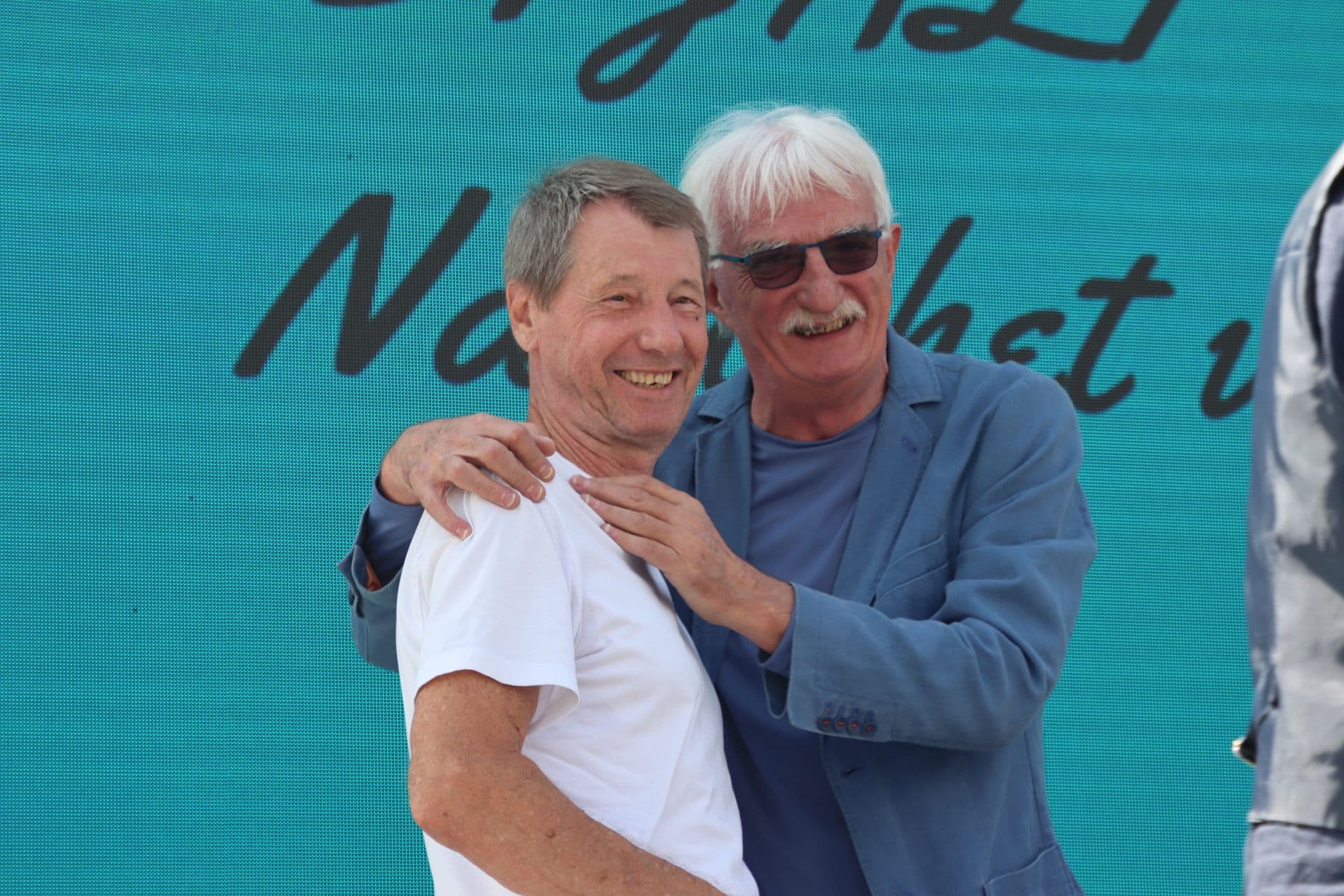Lifestyle
Zoran Moka Slavnic Reflects on Regional Basketball’s Evolution

The landscape of regional basketball has seen significant changes since the glory days of the Yugoslav national team, which captured gold at the 2002 World Championship in Indianapolis. Zoran Moka Slavnic, a legendary figure in the sport, embodies this transformation. At 76 years old, he remains active and engaged in basketball, demonstrating remarkable vitality as he participates in events like the Friendship World Cup in Ulcinj. Known for his sharp insights and articulate commentary, he offers a unique perspective on the current state of the game.
Analyzing Generational Differences in Basketball
Slavnic, a three-time European champion and an Olympic gold medalist, reflects on the contrasting experiences of his generation compared to the current crop of players. He emphasizes character and integrity as defining traits of successful athletes. “Every generation has its own attributes,” he states. “I played in fortunate times, but not wealthy ones. Today, players enjoy financial prosperity but are competing in challenging times.” Slavnic believes that while the game has evolved, the essence of teamwork and dedication remains crucial.
When asked about the current crop of playmakers, he expresses both understanding and concern. He points out that creativity is innate, highlighting players like Milos Teodosic as prime examples of talent. “We have weathered the transitions in basketball well,” he notes, but acknowledges the shift in playing style and strategy that now characterizes the sport.
The Current State of Regional Teams
Recent performances at the EuroBasket tournament have raised eyebrows, particularly regarding the underwhelming results from post-Yugoslav national teams. Croatia failed to qualify for the top 24 teams in Europe, while Montenegro’s expectations fell short, and Serbia faced a shocking defeat in the round of 16. “Theoretically, there could have been five or six Yugoslav teams in the tournament,” Slavnic points out. “Yet, the results reflect the current state of basketball in these countries and how they are structured.”
He reflects on Serbia’s surprising loss to Finland, a team that was previously underestimated. “We will recover, and I’m confident of that,” he asserts, but acknowledges that the lack of unity and creativity on the court contributed to their shortcomings. Slavnic critiques the inability to adapt and innovate during crucial moments, which he believes cost them against a solid Finnish team.
As the EuroLeague season approaches, Slavnic shares his thoughts on the prospects of local teams, particularly the storied rivals in Belgrade. “From what I have seen during preparations, I don’t believe they can reach the playoffs,” he states. “The same mistakes are being repeated, especially in player selection.” Despite this, he chooses to take a step back from expert analysis, preferring to enjoy the games as a fan.
Zoran Moka Slavnic stands as a testament to the enduring passion for basketball in the region. His insights not only reflect the history of the sport but also offer a lens through which to view its future. As the next generation takes to the court, the lessons of the past remain vital for navigating the complexities of modern basketball.
-

 Health3 months ago
Health3 months agoNeurologist Warns Excessive Use of Supplements Can Harm Brain
-

 Health3 months ago
Health3 months agoFiona Phillips’ Husband Shares Heartfelt Update on Her Alzheimer’s Journey
-

 Science1 month ago
Science1 month agoBrian Cox Addresses Claims of Alien Probe in 3I/ATLAS Discovery
-

 Science1 month ago
Science1 month agoNASA Investigates Unusual Comet 3I/ATLAS; New Findings Emerge
-

 Science4 weeks ago
Science4 weeks agoScientists Examine 3I/ATLAS: Alien Artifact or Cosmic Oddity?
-

 Entertainment4 months ago
Entertainment4 months agoKerry Katona Discusses Future Baby Plans and Brian McFadden’s Wedding
-

 Science4 weeks ago
Science4 weeks agoNASA Investigates Speedy Object 3I/ATLAS, Sparking Speculation
-

 Entertainment4 months ago
Entertainment4 months agoEmmerdale Faces Tension as Dylan and April’s Lives Hang in the Balance
-

 World3 months ago
World3 months agoCole Palmer’s Cryptic Message to Kobbie Mainoo Following Loan Talks
-

 Science4 weeks ago
Science4 weeks agoNASA Scientists Explore Origins of 3I/ATLAS, a Fast-Moving Visitor
-

 Entertainment4 months ago
Entertainment4 months agoLove Island Star Toni Laite’s Mother Expresses Disappointment Over Coupling Decision
-

 Entertainment3 months ago
Entertainment3 months agoMajor Cast Changes at Coronation Street: Exits and Returns in 2025









